Videos
-
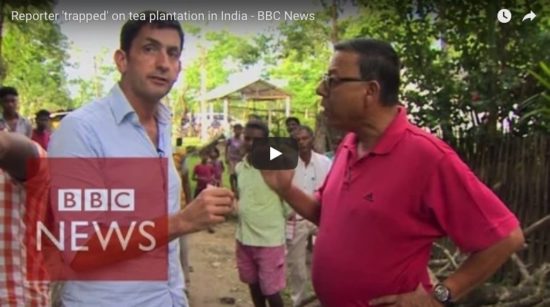 8 September 2015
8 September 2015Reporter ‘Trapped’ on Tea Plantation in India
The BBC’s South Asia correspondent, Justin Rowlatt encountered obstruction from management when he tried to access a tea plantation in India. Several of the world’s biggest tea brands including PG Tips, Lipton, Tetley and Twinings have said they will work to improve the tea estates they buy from in India after a BBC investigation found dangerous, disgusting and degrading living and working conditions. Harrods has stopped selling some tea products in response. The joint investigation by Radio 4’s File on Four and BBC News also found that some tea estates break the law by restricting public access to workers’ living areas. -
 27 February 2015
27 February 2015Building Back Better? The Caracol Industrial Park and post-earthquake aid to Haiti
Five years after the earthquake, a new report from international aid agency ActionAid reveals how a US-backed industrial park, paid for with disaster relief funding, has evicted food-producing farmers from their land in Haiti. An ActionAid investigation shows how more than US$170 million of US emergency aid money to Haiti was used to finance the Caracol Industrial Park, which was built on prime agricultural land in northern Haiti, far outside the disaster zone. A total of 366 families and 720 agricultural workers lost their land and livelihoods with only a few days’ notice to make way for the park. -
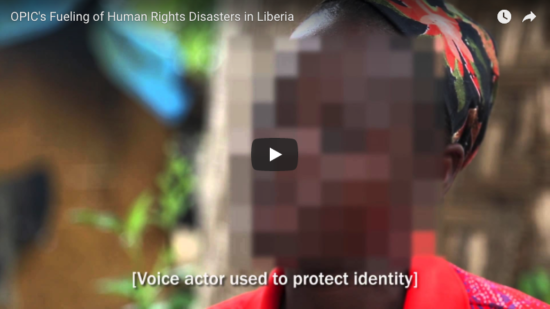 21 January 2014
21 January 2014OPIC’s Fueling of Human Rights Disasters in Liberia
Accountability Counsel supported Liberian farmers, charcoalers, and workers in their efforts to hold the U.S. Overseas Private Investment Corporation (OPIC) accountable for funding a biomass company that caused serious human rights, labor, and environmental abuses, including sexual abuses by company employees of local women. -
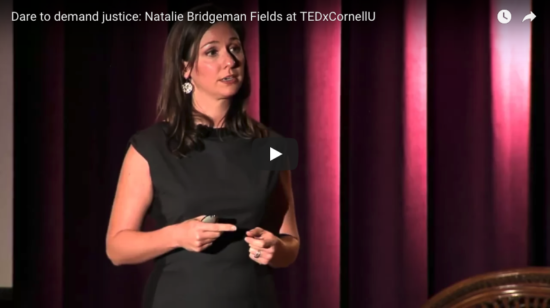 18 December 2013
18 December 2013Dare to Demand Justice: Natalie Bridgeman Fields at TEDxCornellU
When governments and corporations abuse their power at the expense of vulnerable communities, what can these communities do to level the playing field and demand justice? Natalie Bridgeman Fields has spent the past 15 years as an international human rights and environmental attorney, where she has successfully supported communities to defend their rights. Natalie presents three insights used in her work as Executive Director of Accountability Counsel: people in power aren’t always the most informed, the rules of the game matter, and organizing can level the playing field. Natalie’s compelling story shares how these insights can and do change the world. -
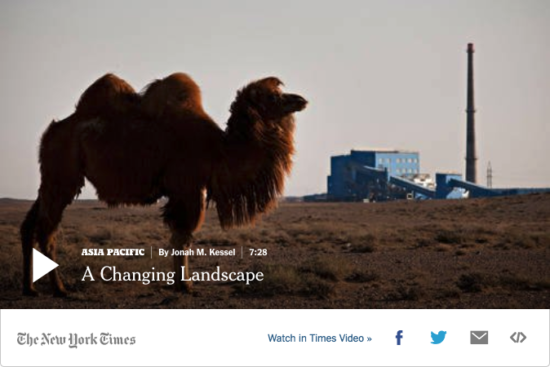 13 September 2012
13 September 2012Mongolia’s Changing Landscape
While gold and copper mining have made Mongolia the world’s fastest-growing economy, they have also created some health and environmental problems in boom towns throughout the Gobi Desert. In this video, The New York Times reports on nomadic herding communities in Mongolia that have been affected by Rio Tinto’s Oyu Tolgoi mine project. -
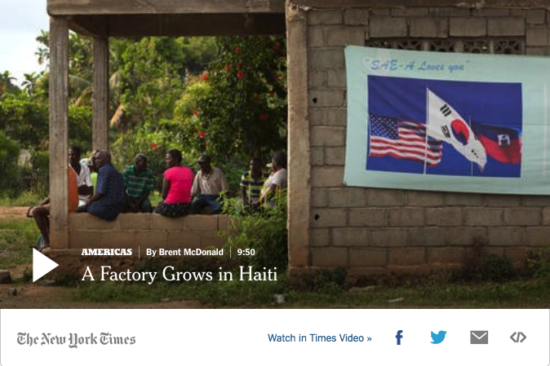 5 July 2012
5 July 2012Earthquake Relief Where Haiti Wasn’t Broken
The showcase project for Haiti’s earthquake reconstruction is being built far outside the disaster zone, in a location that could jeopardize the country’s key conservation effort. -
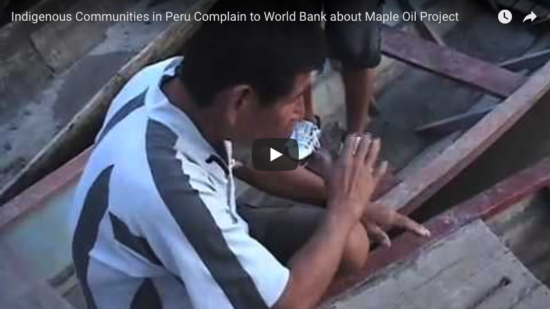 6 April 2010
6 April 2010Indigenous Communities in Peru Complain to World Bank about Maple Oil Project
Accountability Counsel worked to support the Shipibo Indigenous communities of Canaán de Cachiyacu and Nuevo Sucre in the Peruvian Amazon in their struggle to hold Maple Energy and its investors accountable for the harmful impacts of Maple’s oil operations on their land. The communities suffered seven oil spills between 2009 – 2012, leading to severe human rights and environmental abuses, including use of forced labor in one of the villages to clean up an oil spill.

